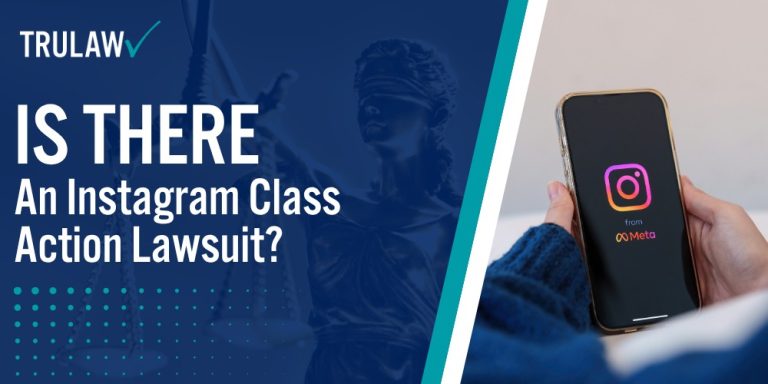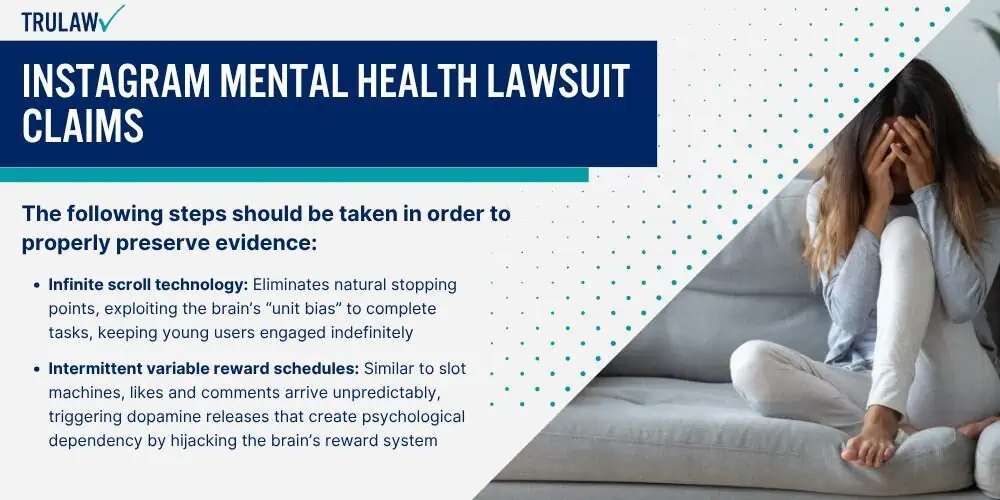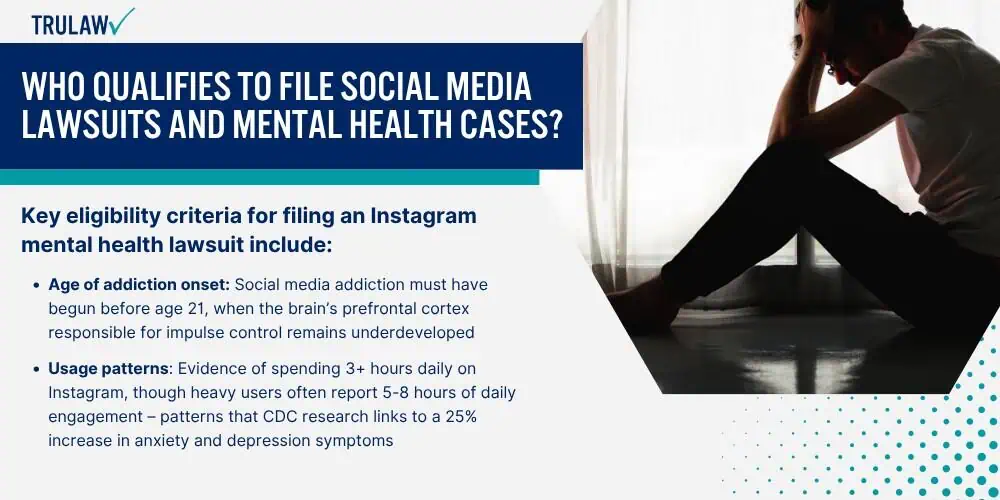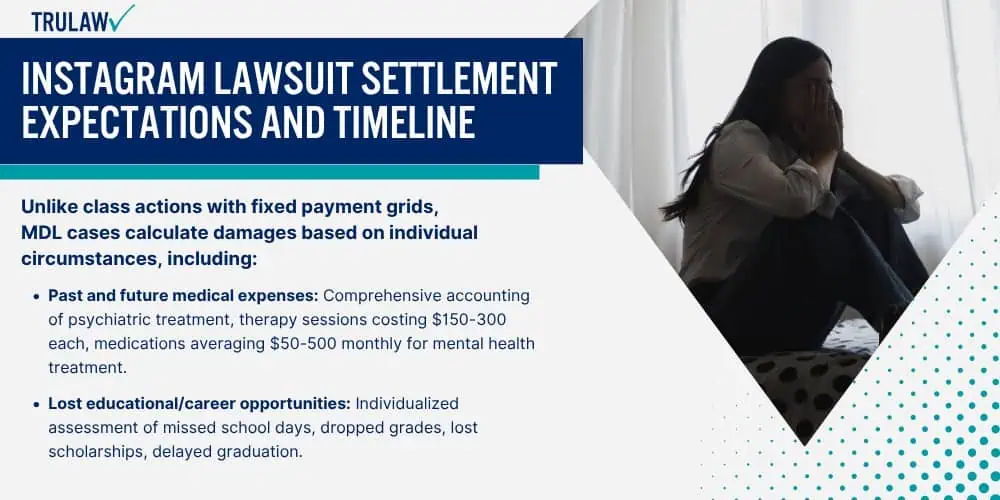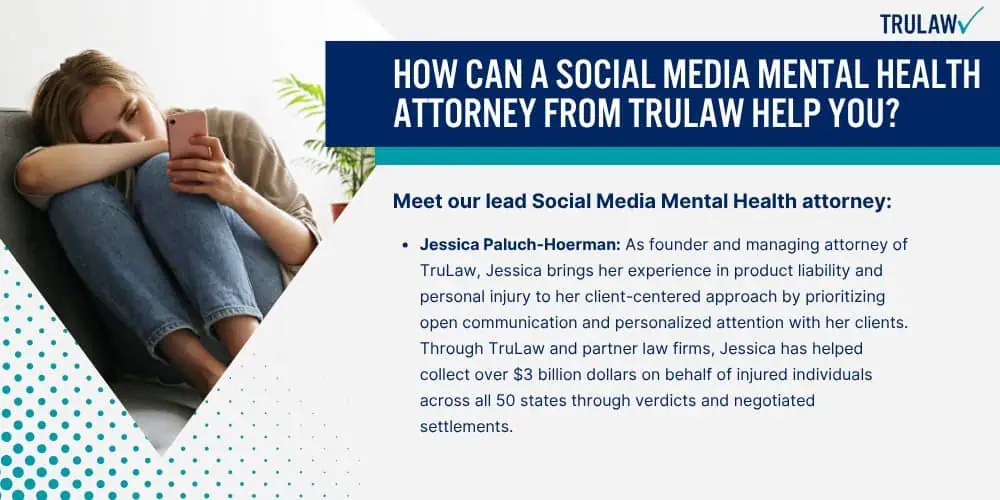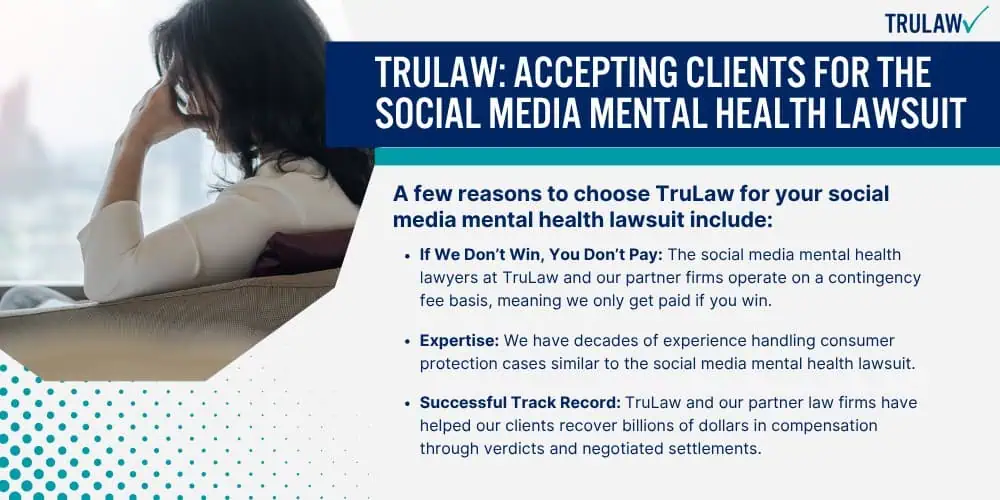MDL 3047 represents a groundbreaking legal consolidation addressing the youth mental health crisis linked to social media platforms like Instagram.
An MDL, or Multidistrict Litigation, differs fundamentally from a class action by maintaining individual lawsuit integrity while streamlining common pretrial proceedings.
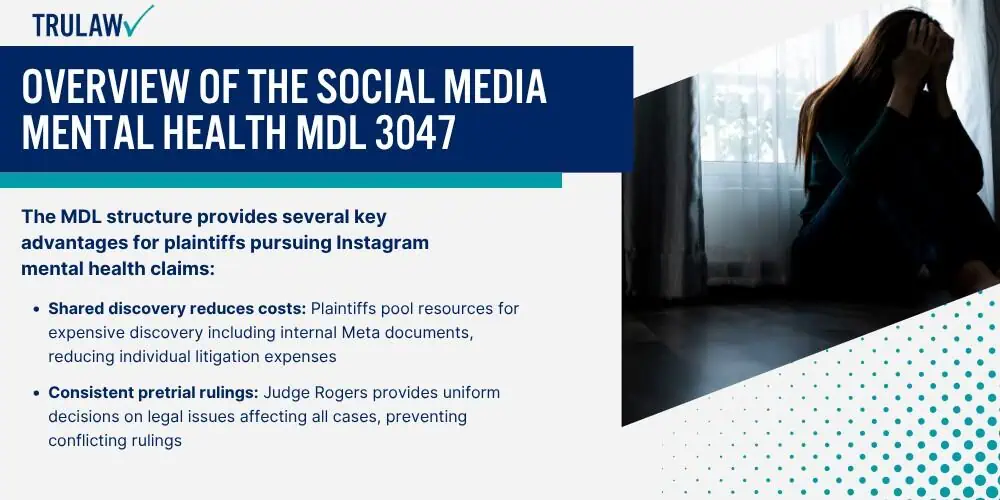
This approach recognizes that each plaintiff’s mental health journey, well being, and resulting damages are unique, requiring personalized legal representation and compensation structures.
The Judicial Panel on Multidistrict Litigation established MDL 3047 in October 2022, centralizing cases in the Northern District of California under Judge Yvonne Gonzalez Rogers.
This consolidation ensures consistent pretrial rulings while preserving each plaintiff’s right to tell their individual story of harm.
Is There a Class Action Lawsuit Against Instagram?
No, there is not a class action lawsuit against Instagram for mental health damages.
MDL 3047 consolidates individual personal injury lawsuits filed by plaintiffs who suffered distinct mental health injuries from Instagram use.
This distinction means each plaintiff maintains their own separate lawsuit with unique claims, damages, and potential outcomes rather than being lumped into a single class action with uniform results.
The MDL structure differs from class actions in several key ways.
In a class action, one lawsuit represents all plaintiffs who receive identical treatment and share any settlement equally.
MDLs consolidate only pretrial proceedings like discovery and motions while each case remains independent.
This independence allows plaintiffs to present their specific injuries, treatment costs, and life impacts without being bound by class-wide averages or caps.
Attorneys specifically chose the MDL route over class action to protect plaintiffs’ rights to full compensation in their Instagram addiction lawsuit claims.
Mental health injuries vary dramatically between individuals – one teen may have attempted suicide while another developed an eating disorder.
The MDL structure ensures each plaintiff can pursue damages commensurate with their actual harm rather than accepting a one-size-fits-all class settlement that might inadequately compensate those with severe injuries.
The Social Media Adolescent Addiction MDL Framework
The consolidation covers pretrial proceedings including coordinated discovery, expert witness depositions, and motions to dismiss, benefiting all plaintiffs through shared resources and consistent judicial rulings.
However, each plaintiff’s case proceeds individually toward resolution through settlement negotiations or trial based on their specific circumstances.
The MDL structure provides several key advantages for plaintiffs pursuing Instagram mental health claims:
- Shared discovery reduces costs: Plaintiffs pool resources for expensive discovery including internal Meta documents, reducing individual litigation expenses
- Consistent pretrial rulings: Judge Rogers provides uniform decisions on legal issues affecting all cases, preventing conflicting rulings
- Individual damage assessments: Each plaintiff’s mental health injuries, treatment needs, and life impacts receive personalized evaluation
- No opt-in requirement: Unlike class actions, plaintiffs don’t need to opt-in or opt-out – they simply file their individual lawsuit
- Preserve right to individual trial: Plaintiffs maintain the option to try their case separately if settlement negotiations fail
The MDL process includes bellwether trials scheduled to begin in 2025, which will test the strength of various claim types and potentially establish settlement frameworks.
These trials involve representative cases selected from the MDL pool, providing insights into how juries value different types of Instagram-related mental health injuries.
If you or a loved one experienced severe mental health problems after using Instagram, you may be eligible to seek compensation.
Contact TruLaw using the chat on this page to receive an instant case evaluation and determine whether you qualify to join others in filing an Instagram Lawsuit today.
